1. You Ate What Was Served—No Exceptions
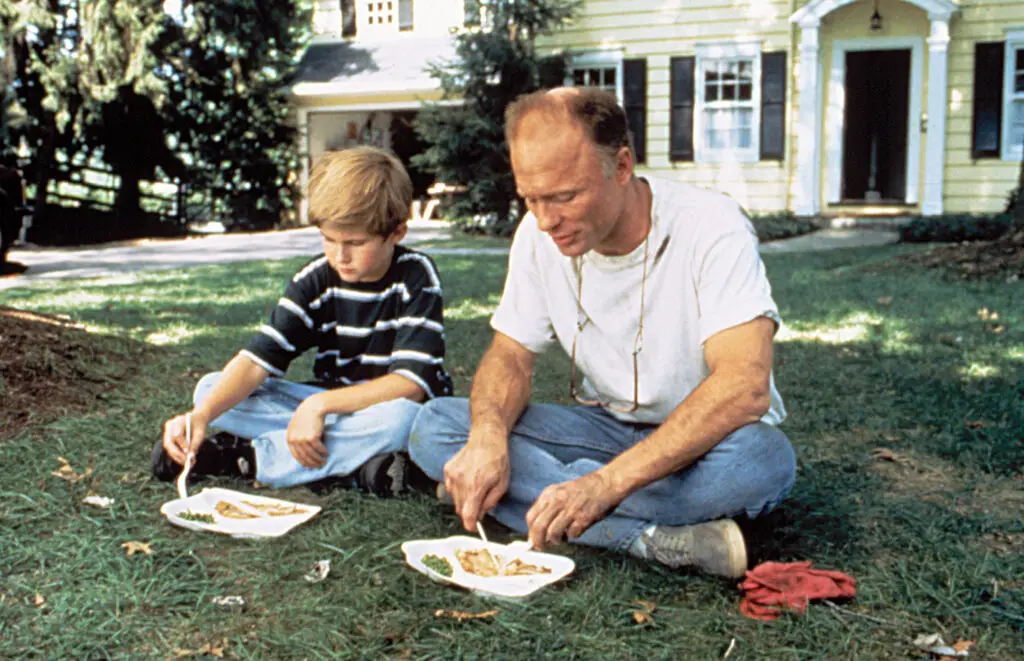
Back then, dinner was not a choose-your-own-adventure. You sat at the table, and you ate what Mom made, whether it was liver and onions or tuna casserole with crushed chips on top. If you didn’t like it, too bad. There were no alternate meals, no “I don’t eat that” speeches. You learned to be polite and grateful, even if you had to gulp down cold peas. Parents saw food as nourishment, not a negotiation shares BuzzFeed.
That kind of approach toughened you up fast. You learned resilience through soggy Brussels sprouts and meatloaf nights. It wasn’t about deprivation—it was about appreciating the effort someone made. Today, many of those kids are the ones who clean their plate without complaining and say “thank you” even when it’s not their favorite adds MSN.
2. You Played Outside Until the Streetlights Came On
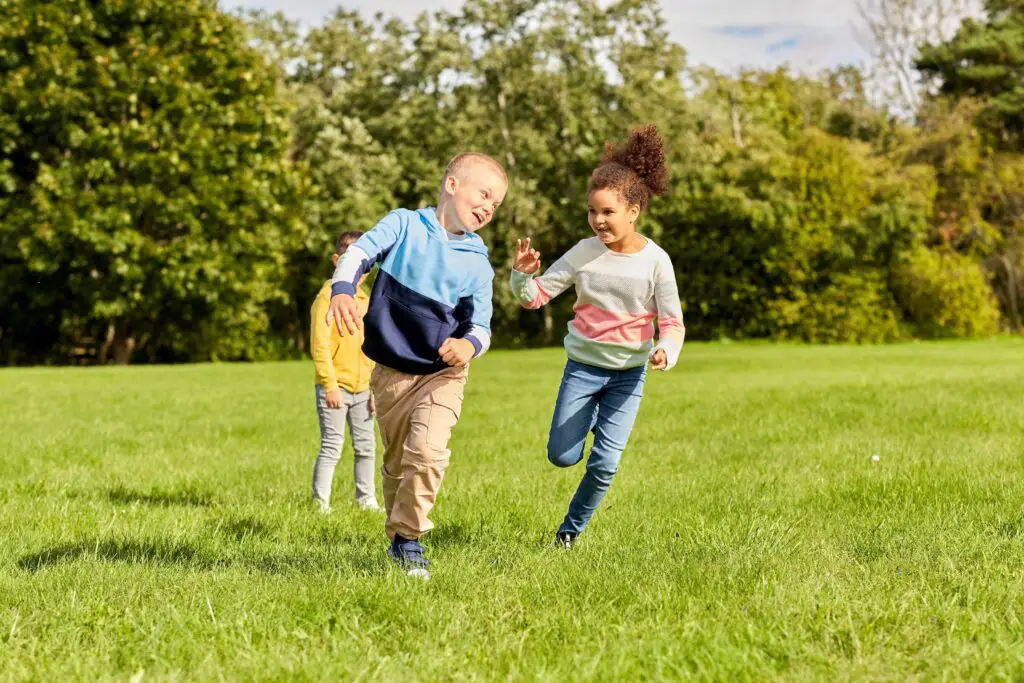
There weren’t endless indoor playdates or screens to pass the time. After school, kids were sent outside—rain or shine—with a simple command: “Be home by dark.” There weren’t texts checking your location, just the glowing streetlights as your curfew. You learned to entertain yourself with bikes, jump ropes, and imagination says DMNews.
The freedom came with responsibility. You scraped your knees, got dirty, and figured things out without constant adult supervision. That kind of independence taught problem-solving and self-reliance early. There was something toughening about knowing how to handle yourself without a grown-up always nearby shares Kidsburgh.
3. Chores Weren’t Optional
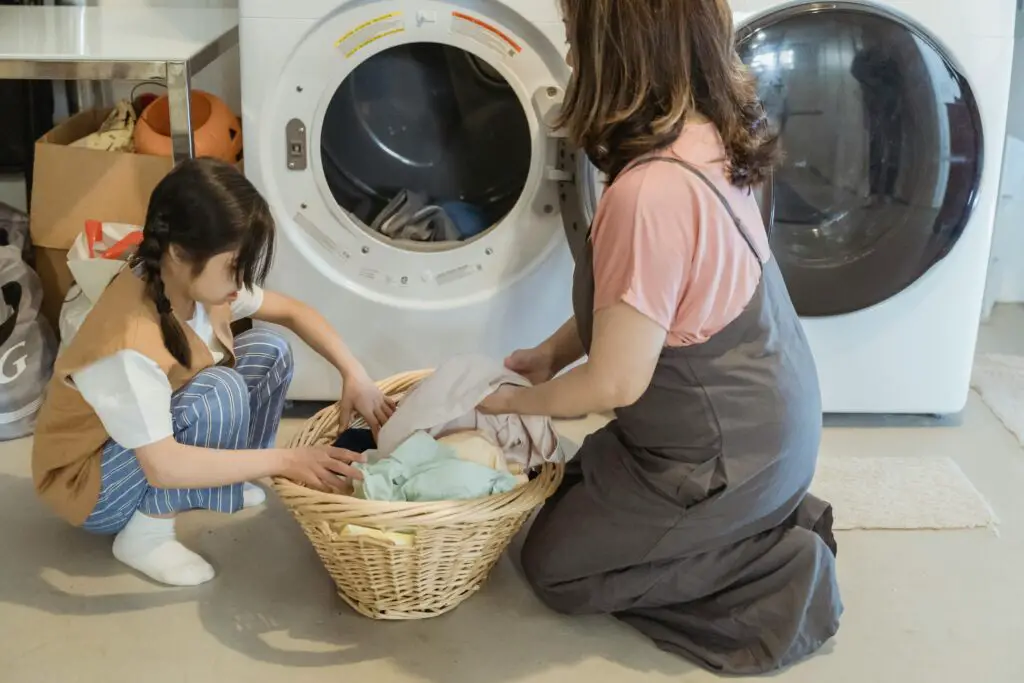
Every kid had a list, and it wasn’t just making your bed. You mowed the lawn, raked leaves, washed dishes, and cleaned your room without being paid or praised for it. It was simply expected because you were part of a family. If you whined, it didn’t change anything—it just earned you a “because I said so.”
That early sense of responsibility created adults who didn’t expect the world to owe them something. Doing chores taught work ethic before you even had your first job. You learned to take pride in a clean floor or a well-dusted living room. And maybe, just maybe, you still can’t leave a dish in the sink without twitching.
4. You Respected Adults—No Back Talk Allowed

In school or at home, there was a clear hierarchy: adults were in charge. You said “sir” or “ma’am,” you didn’t interrupt, and eye-rolling could earn you a glare that froze you in place. If a neighbor caught you misbehaving, they’d tell your parents—and you’d get in trouble twice.
Respect wasn’t a suggestion—it was a rule that taught humility. You learned to listen, to wait your turn, and to understand that your opinion wasn’t always the loudest in the room. Today, that shows up in good manners, thoughtful conversations, and knowing how to deal with authority. It’s a form of emotional toughness that sticks with you.
5. You Wore What Was Picked Out for You
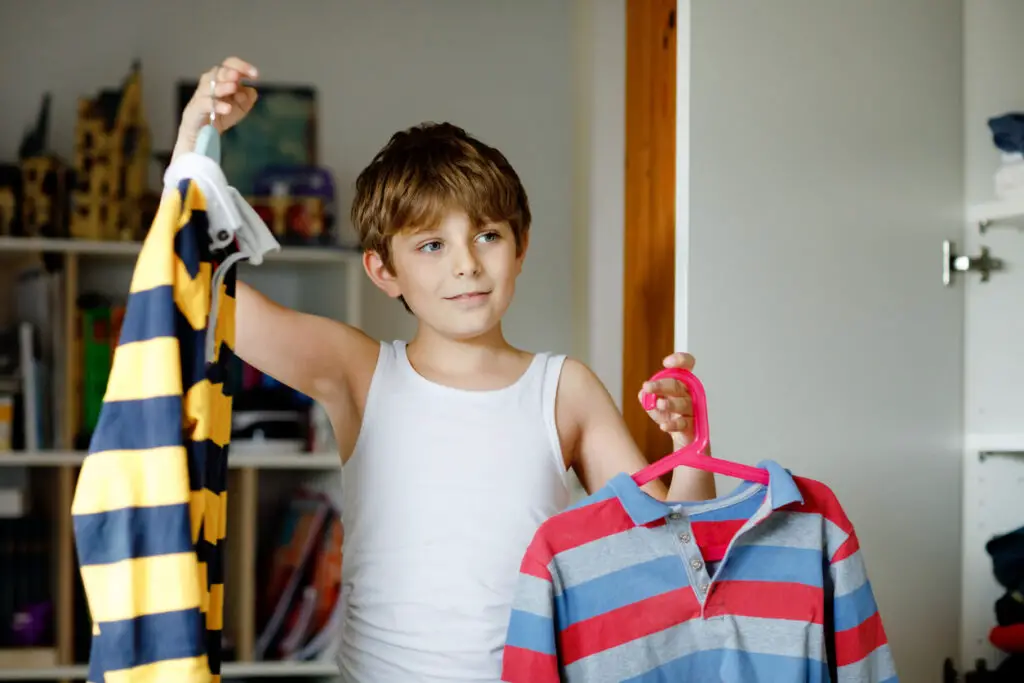
No one asked if you “felt comfortable” in your clothes. You wore what your parents bought, whether it was itchy wool tights or those stiff Sunday shoes that pinched your toes. Fashion freedom wasn’t a thing—you had your school clothes, your play clothes, and your church clothes. That was it.
It may not have been glamorous, but it taught you practicality. You didn’t expect the world to cater to your preferences, and you learned to deal with discomfort. It wasn’t about self-expression; it was about getting dressed and moving on. And now, as an adult, you probably don’t panic over dress codes or feel the need to change outfits five times.
6. School Was Serious Business

You went to school no matter what. Fever? As long as you weren’t throwing up, you were going. Forgotten lunch? Tough luck, you’d survive until 3. Teachers were in charge, and parents backed them up. There was no blaming the system or demanding special treatment.
This built a sense of resilience in a place where expectations were high. You learned to do your homework, take tests seriously, and figure things out when you didn’t understand. If you got in trouble at school, you got it worse at home. That kind of structure gave you the discipline to face challenges head-on as an adult.
7. You Couldn’t Complain About Being Bored

Saying “I’m bored” was like lighting a fuse. Parents didn’t see boredom as a problem—they saw it as a chance for you to go find something to do. That meant creating games, building forts, or flipping through the encyclopedia just for fun. You used your imagination, not an app.
It was frustrating at the time, but it wired your brain to be curious and creative. You learned to entertain yourself and enjoy quiet moments. Today, that might show up as being okay with downtime, knowing how to start a hobby, or being able to sit with your thoughts. That’s its own kind of strength.
8. You Solved Fights Without an Adult Referee
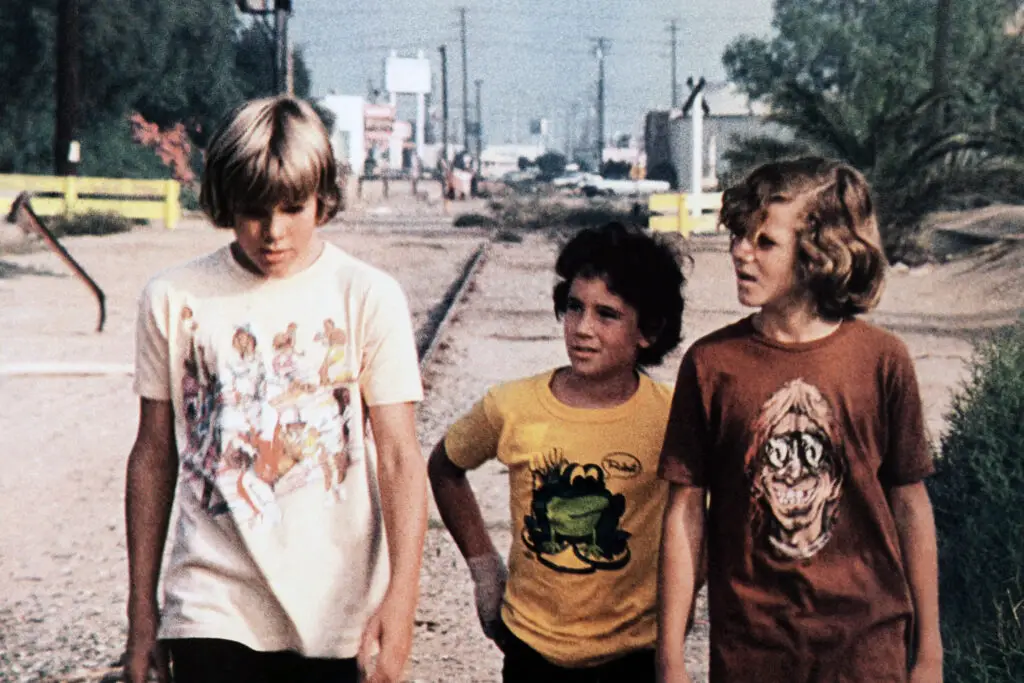
Whether it was a sibling squabble or a playground disagreement, adults didn’t jump in every time. You were expected to figure it out, apologize when needed, and move on. If you tattled, you were told to “work it out.” You learned quickly how to compromise, stand your ground, or let something go.
These early conflict-resolution skills weren’t always graceful, but they stuck. They taught you to navigate tricky relationships, manage tension, and not crumble at the first sign of friction. Many kids from that era grew up with thick skin and solid boundaries. It wasn’t about being perfect—it was about being able to bounce back.
9. Privacy Was Rare, and You Got Used to It

There wasn’t much personal space. Bedrooms were shared, phone calls were overheard, and everyone knew everyone’s business. You had to ask before using the phone or TV, and locks on doors were discouraged. You learned to coexist in close quarters.
That environment bred patience and adaptability. You didn’t expect the world to tiptoe around your needs. Instead, you learned how to focus with distractions, share without resentment, and let little things go. That kind of mental flexibility still serves you well.
10. You Walked or Biked Everywhere—Alone
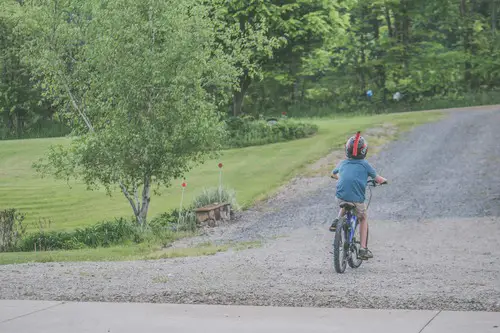
There were no carpool groups or supervised playdates. If you wanted to get somewhere, you figured out how to get there. You memorized routes, crossed streets carefully, and stayed alert. Kids were given trust, and that trust came with responsibility.
This taught early independence in a way few experiences can. You knew how to be aware of your surroundings and make smart decisions. It gave you confidence in your abilities and built a sense of freedom that wasn’t tied to anyone else’s schedule. That sticks with you into adulthood.
11. TV Time Was Limited and Earned

You didn’t just plop down in front of a screen all day. TV was a treat—maybe a Saturday morning cartoon or an hour after dinner if everything else was done. You didn’t have 500 channels or a tablet to carry around. And when your show was over, that was it until tomorrow.
Because of that, you learned to savor entertainment and not take it for granted. You also had more time to read, go outside, or just be quiet. That balance helped shape attention spans and patience. It wasn’t about deprivation—it was about not letting screens run your life.
12. You Took Responsibility for Your Mistakes
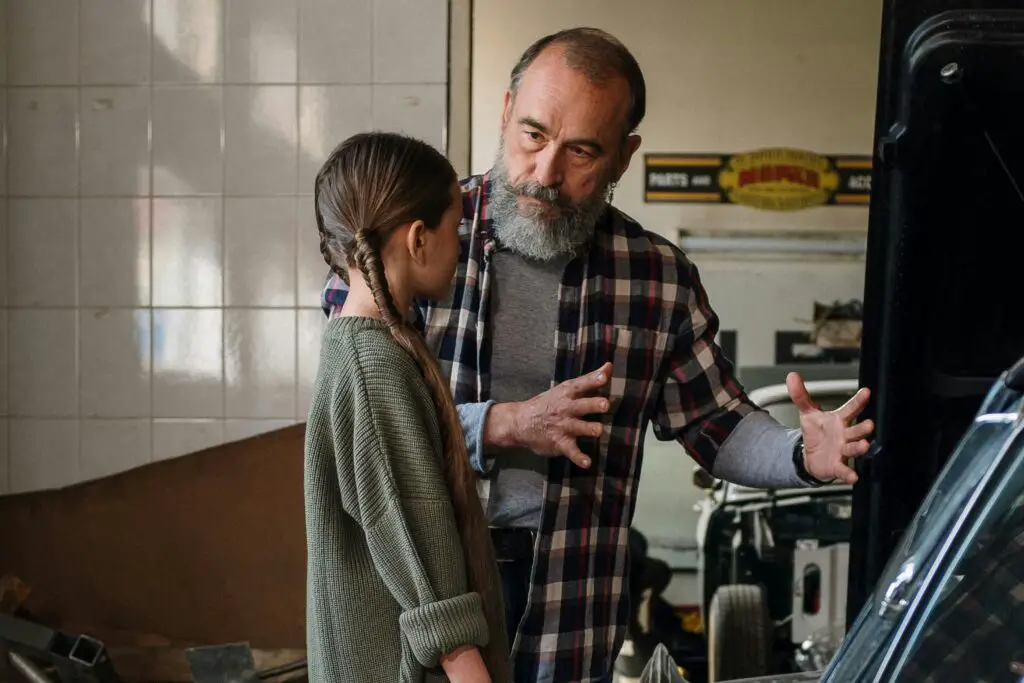
If you broke it, you fixed it—or at least admitted it. There were no long negotiations or shifting the blame. Parents didn’t want excuses—they wanted accountability. Whether it was a dent in the car or a missed chore, you owned up and dealt with the consequences.
That honesty built emotional strength. You learned to accept imperfection and grow from it. There’s a quiet kind of courage in saying, “I messed up.” That lesson still carries into how you work, parent, and live today.
13. You Didn’t Get a Trophy for Showing Up

There weren’t participation ribbons for everything. If you won, you got the trophy. If you didn’t, you cheered for the winners and tried again next time. Success wasn’t handed out—it was earned, and that made it mean more.
That shaped a generation that values effort and grit. You learned to work hard and not expect applause every time. You weren’t crushed by failure—you were motivated by it. That toughness didn’t come from always winning; it came from learning how to keep going when you didn’t.
